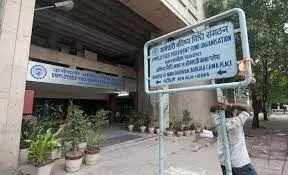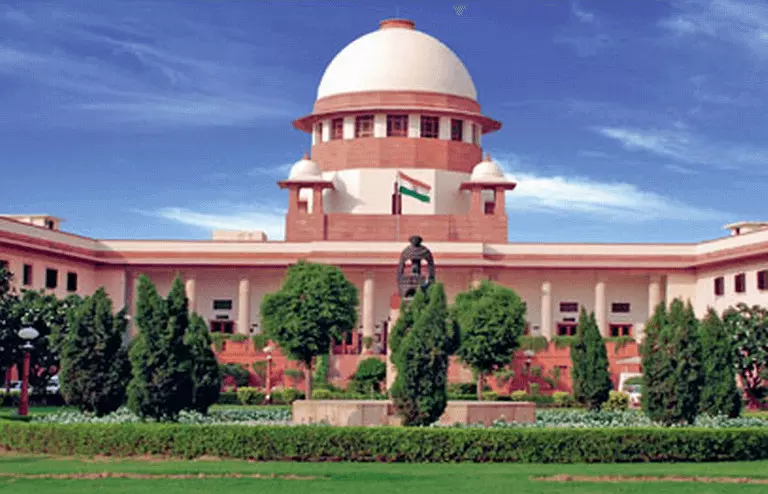
SC's PF pension verdict gives much to employees; but riders remain
text_fieldsThe decisive verdict by the Supreme Court on Provident (PF) Pension will give consolation to the millions of organised labour class of the country. The apex couort's verdict came on the petition filed by EPFO against the judgments of state high courts of Kerala, Rajasthan and Delhi which had set aside the Employees Pension (Amendment) Scheme of 2014. But, to put in summary the Supreme Court has partly validated that decision without nullifying the pension scheme in toto, unlike what the high court had done. One of the provisions of the central scheme was the ceiling of Rs 15,000 as eligible amount for pension. What the high courts including Kerala High Court had decreed was totally striking down this with an order that pension should be given in proportion to the higher salary also in the organised sector. The Supreme Court has taken a stand favourable to the employees in this matter. Not only will more employees become eligible for the benefit through this, there will also be substantial increase in the pension amount. But instead of the high courts' order that pension should be fixed proportionately on the salary earned one year before retirement, the Supreme Court has taken at face value the Centre's proposals of 2014. In other words, even as the ceiling of Rs 15,000 is eliminated, pension will be determined based on the average of the salary earned during the last 60 months before retirement. Naturally, the beneficiaries will receive a pension amount lower than what would accrue as per the order of the High Court. Although riddled with such complications, ultimately the judgement is beneficial to the labourers of the country. More than that, the highest court has rejected most of the specious arguments of the Centre and upheld the principle that PF pension is a right of employees.
Setting aside the Centre's amendment notification regarding PF pension and annexed order, the Kerala High Court had decided on October 12 2018 that pension should be disbursed in proportion to the actual salary. The judgement also cited that implementing a scheme, which should ensure benefits to all employees equally, with discrimination would be contradictory to the very law of EPFO. The court had before it 507 petitions pointing out that the notification of 2014 was one that withdrew many of the entitlements of employees. AT a quick glance, that notification was purely anti-labour. Although a salary ceiling of Rs 6500 was fixed before the amendment, the employee was free to pay an amount to the pension fund in proportion to salary. That facility was withdrawn with the amendment. And a new provision was introduced that when the employee pays a higher amount above the ceiling, he has to contribute at the rate of 1.16 percent of the differential amount above the ceiling. It was against this patently discriminatory provision that the court reacted. But before implementing the judgement, EPFO approached the Supreme Court which put the matter in uncertainty again. Although the initial petition was turned down, with the Labour Ministry also joining the case, the judiciary accepted the review petition. In August 2021, the two-member bench referred the case to a three-member bench.
Right from the outset of hearing, the line of authorities was clear: one of them was that if pension is given in proportion to the salary above the ceiling, the pension fund would shrink; secondly EPFO also raised the issue of excess financial burden. It was claimed that following the Kerala High Court order, when higher pension was given to 22,000 individuals, an additional burden of Rs 257 crore was incurred. At this rate, they argued, there would be an additional burden of Rs 1.27 lakh crore. But the court on the other hand clarified that concerns based on such play of numbers had no basis. The judgement has also come in line with that approach. For employees who spend a major part of their working life for the economic progress of the country, schemes like pension give them the right to spend the rest of their life without worries. It is not a dole, but a right. It is in recognition of this that the Central government introduced PF pension for the organised labour of private sector who had no pension until then. Along with transferring a portion of the PF share of the employer, that scheme also envisaged a small share to be borne by the government. But the fact is that the scheme, which should have become popular, did not serve the intended purpose right from inception.
Although several cases came up before various courts pointing out the shortfalls of the scheme, none of such issues was subjected to serious debate. The only major exception was in a case in 2011 before Kerala High Court which produced a judgement in favour of the employees. With that, the authorities became intent on sabotaging the very PF pension. And in fact the amendment notification of 2014 was issued with loopholes facilitating it. And it was recognising that danger that three courts in the country read down that order in toto. Now what the Supreme Court has done is to give minor concessions including on the ceiling of salary. Although this in every way is beneficial to employees, it should not be forgotten that the amendment notification remains intact. The judiciary has an obligation to address that threat too.
























